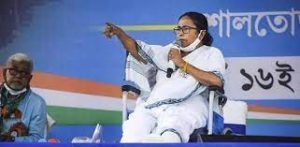Demand Of President’s Rule In West Bengal:

Imposition of President’s rule in West Bengal is being demanded, following the gruesome incidents in Birbhum in which 10 people, including two children, were burnt alive.
- Article 356 of the Constitution of India gives the President of India the power to suspend state government and impose President’s rule of any state in the country if “if he is satisfied that a situation has arisen in which the government of the state cannot be carried on in accordance with the provisions of the Constitution”.
- It is also known as ‘State Emergency’ or ‘Constitutional Emergency
- Upon the imposition of this rule, there would be no Council of Ministers.
- The state will fall under the direct control of the Union government, and the Governor will continue to be head the proceedings, representing the President of India.
- A proclamation imposing President’s Rule must be approved by both the Houses of Parliament within two months from the date of its issue.
- The approval takes place through simple majority in either House, that is, a majority of the members of the House present and voting.
- Initially valid for six months, the President’s Rule can be extended for a maximum period of three years with the approval of the Parliament, every six months.
- Under Article 356, President’s Rule is imposed if the President, upon receipt of the report from the Governor of the State or otherwise, is satisfied that a situation has arisen in which the government of the State cannot be carried on in accordance with the provisions of the Constitution.




